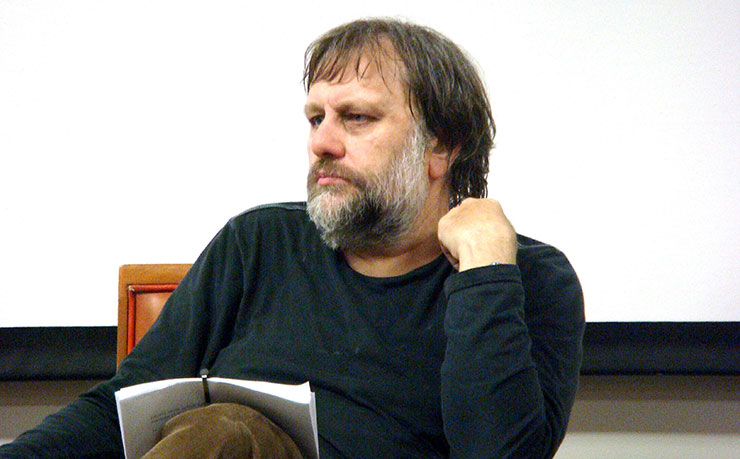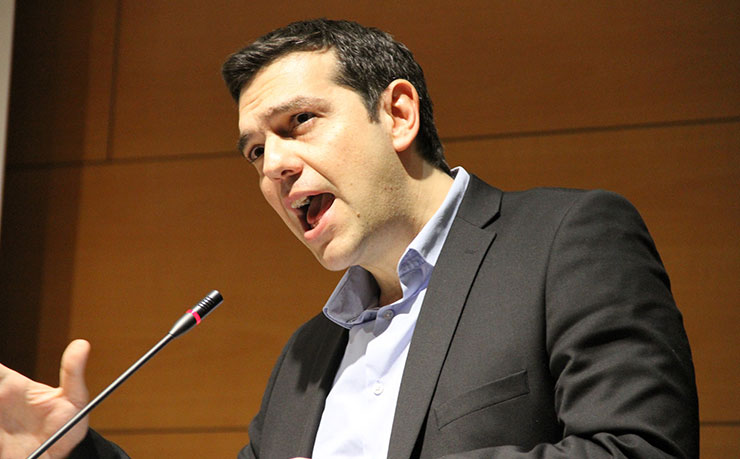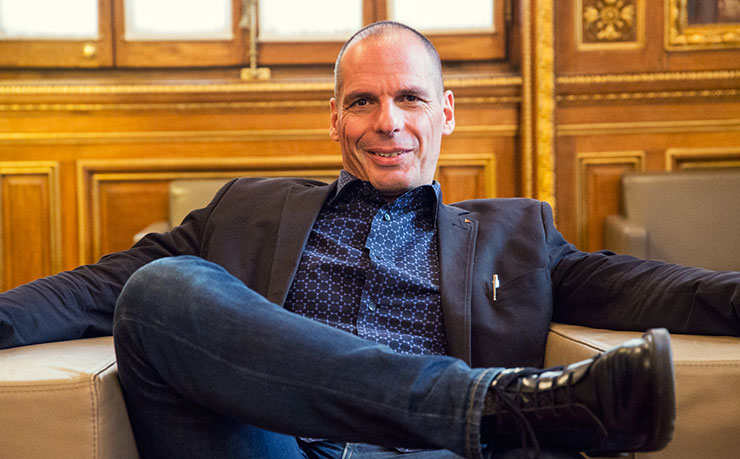The left wing party that rose spectacularly to power in Greece in 2015 has delivered none of the promise so many were hoping for, writes Professor Vrasidas Karalis.
When it was elected we all felt relief. No more austerity, no more fiscal restrictions, no insecurity – these were the months of thinking magically. A new hope had emerged, promising policies different to the neoliberal market priorities and inviting the people to protect national sovereignty from being taken over by external forces.
The magic was dispelled some weeks later leaving behind confusion, anger and embarrassment.
Certainly, SYRIZA is not a black and white case: it emerged as a considerable political force when previous policies and institutional practices of the dominant political order reached their most disastrous dead-end, sometime in 2014. It offered optimism and promised change at the moment when the systemic parties were reacting with vulgar populism or alarmist rhetoric of gloom and doom.
When SYRIZA was elected on January 25th, 2015, everything looked promising and optimistic not simply for Greece, but for the whole left-wing movement in Europe. Its election offered an example of how to rekindle interest in politics and how to mobilise citizens in active participation. Or at least, so it seemed in the beginning.
Many intellectuals from all over Europe and the US, both liberal and Marxist, supported it because they found the arrogant way that the EU treated a whole country undemocratic and somehow colonialist. The SYRIZA affair was from its inception a highly imaginative case: it fulfilled an expectation and a premonition. Its main goal was to smash the EU bureaucracy and even proceed with the dissolution of the Eurozone, giving back to nation-states their splendid sovereignty, independence and uniqueness.
It was, however, conveniently overlooked that SYRIZA was the product of the corrupt political order which supposedly came to abolish. A considerable 40% of its elected members belonged to the traditional parties of power, both the Socialist and Conservative. Furthermore it never gained a convincing large majority and opted to share government with a fascist and ultra-nationalistic party, the Independent Greeks.
In Australia that would mean a coalition between Pauline Hanson and Labor, or in Britain a government shared by UKIP and the Labour party. The strange bedfellows, a radical left and radical fascist party together, meant that power was inevitably going to be administered along bureaucratic lines, with party officials being the locomotive of history that Lenin wanted his Soviet Communist party to be.
Despite the outlandish fairy-tales put forward by Slavoj Zizek (to whom we shall return) their coalition indicated that the political governance would remain at the level of administrative bureaucracy and wouldn’t touch the actual realm of politics, changing the relations between citizen and state, reinstating the authority of the people in the political sphere or instituting checks and balances on the malfunctioning institutions.

SYRIZA supporters conveniently forget that absolutely nothing was done to change the function of the state apparatuses and their presence towards a civil society. With the exception of the same-sex legislation which passed with the support of the parties other than their fascist partner, nothing else was done to open up the institutional structure of the state to the scrutiny or the control of citizens, nothing was done to enhance democracy to include the immigrants who live in the country since the nineties, nothing to protect minorities, confront racism or finally redress economic injustices.
On the contrary, with grand protagonists like Alexis Tsipras, Yanis Varoufakis and other colourful individuals, politics became a theatrical performance, a collective spectacle which, like the huge rallies of the past, created an atmosphere of an imminent apocalyptic explosion, a Hollywood end of days biopic.
Tsipras and his ministers succeeded not only in neutralising social activism, but transformed citizens into passive viewers of a Star Wars extravaganza. Folk-songs, political dithyrambs from the 70s and the ubiquitous Carmina Burana galvanised a spirit of resistance against Merkel and Germany, and then against the EU, and finally against everybody.
The game-theory to push the Troika to the corner and allow Greece to borrow money without ever being held accountable (‘to use the funds with relative autonomy’ as the flashy finance minister so euphemistically stated) started proving more and more precarious, as the Greek amateurs tried to play games with the very people who perfected them in the past.
Attempts to secure assistance from Russia, Iran, China and Venezuela all failed, as it was also clear that the road to them was going through Berlin and Brussels. In their visit to Moscow in May 2015, some government members were also shocked to discover that Putin was not Brezniev, and that Russia was not communist any more.
And then came the James Bond story of the ludicrous Plan B, which would supposedly have bought money and time by stealing existing Euros and issuing worthless IOUs, and which would implicitly lead back to drachma… Don Quixote and Baron Munchausen in one go…
The growing rift culminated with the ridiculous and divisive referendum of July 2015 in which, in less than two weeks, the people were summoned to approve or disapprove two agreements which, on the ballot paper, were written in English.
The referendum was a grand manipulative gesture to pre-empt internal party fights within the ruling coalition, as it was becoming obvious that the failure of the negotiating tactics could have led to an immense social meltdown. It also had nothing to do with austerity or imminent bankruptcy, but with the sudden realisation by the SYRIZA leadership that ultimately they didn’t have the mandate to change the political, social, and economic orientation of the last 200 years.
The European Left, with Paul Mason as its cheerleader, produced a seductive heroic mythology about a David vs Goliath conflict. Mason’s pretentious mockumentary This is a Coup is the finest example of an outlandish orientalist fantasy. Its main protagonist was Mason’s constipated Oxbridge accent roaming with a camera through the new Stalingrad, as he called the corridors of power in Athens, since such battlefields could not be found in Great Britain anymore.

The SYRIZA affair was a parable of what the British left and The Guardian wanted to promote: political fables of ideological resistance and struggle in the era of rising neo-fascism. Following the promotional slogan of Greek tourist organisations, Paul Mason went to Greece to live his personal myth, imagined in the style of a revolutionary Mama Mia, without its happy ending.
Meanwhile the refugee crisis broke out and it was also clear that the Greek government couldn’t do much by themselves. I found myself on the island of Lesbos in June 2015 when thousands of refugees starting arriving. Despite despite the initial moving reception by the inhabitants, it was obvious that the number of people crossing the borders was far beyond any reasonable possibility to manage or even assist. I asked the local MP what would happen and he responded and the refugees will disappear soon, and everything will be great waiting for summer tourists.
Of course the reality was different but, but it was a solid indication of the understanding of the magnitude of the problem government officials had when the influx of refugees began.
Geopolitics, something that the party ideologues haven’t predicted, struck. Under such serious circumstances, the circus of constant interviews and perpetual procrastination was becoming boring and tiresome. Mr Varoufakis’ photographs in the life-style proletarian French magazine Paris Match were emblematic of the ‘frugal life’ he had proposed to the Greek people.
In the midst of the crisis, he and his wife – both off-springs of the industrial haute bourgeoisie – were enjoying a lavish banquet with expensive sea-food, priceless wine and a view of the Acropolis while pensively reading his latest book. The image and the reality came to the ultimate rupture – and collapsed.
Soon the proud No of the deceptive referendum became a humiliating Yes and the Yes became a desperate Whatever! It was inevitable. In retrospect, we must praise Alexis Tsipras that he took the decision to reverse the trajectory that the fantasistes of the party wanted to follow.
It is not simply realpolitik or beyond juissance in politics, but the ultimate realisation that ideas do have consequences. While while 20 or 50 Euros less in the pension of a citizen might only be a cup of coffee at the London Ritz Hotel for Mr Mason, Varoufakis, Zizek and their entourage, for the Greek people it might equal groceries and food for a whole month.
The absolute lack for empathy for the predicament of Greek citizens indicates the delusional fanaticism of those who envisaged, promoted and worked for a de facto Grexit. And to a certain degree it is due to the cruelty and the indifference to the plight of the hoi polloi by such privileged intellectuals who would prefer to see a country in bankruptcy, with all the social consequences that it would entail, instead of admitting that they were wrong and another course of action was possible.

(IMAGE: Marc Lozano, Flickr).
A mixture of inexperience, provincialism and romantic utopianism can be detected in them. Recently, Tsipras had the courage to admit that he didn’t really know how to govern when he was first elected and that he chose many wrong people (meaning the Soviet fossils of the Left Platform, probably). Learning on the job is a very dangerous thing: especially when you have to govern a whole nation.
Meanwhile, Zizek recently published a lengthy diatribe of rambling hallucinogenics about “SYRIZA as a shadow event”. (The Courage of Hopelessness, Penguin, 2017, p. 45-86). His verbose meta-analysis is a magnificent example of his usual totalising generalities of ‘one size fits them all’. If you change ‘Greece’ and the proper names, this could have been written for Venezuela and Chavez, Castro and Cuba, Pol Pot and Cambodia, even Brenziev and USSR.
The gaping hole in his analysis is that, like a true Hegelian, Zizek tries to write history without facts and, paradoxically, even with great men (at least one great man). He only sees intentions and proclamations, conflicting voluntarisms from all sides. He doesn’t know anything about the structure of the economy, politics or even the history of the country, except what biased sources – his friends from SYRIZA – have told him. He doesn’t give us the differentiating detail that will assure us he knows the specific circumstances of the situation he is referring to. He conflates language with reality and the conflict between individuals and state representatives with the actuality of politics and governance.
His great man, ‘Varoufakis’ becomes for him a brand name for all utopian revolutionary projects that the conformism of the dominant middle class uses, the way youngsters today use their Ipads: to escape from the confusion of the real world. It is the celebrity cult in political terms and Varoufakis plays the game exceptionally well, the way that Milo Yannopoulos plays it for the alt-right.
In the era of reality shows, nothing is more alluring that the idea of a lonely cowboy challenging the deep establishment with the heroic certainty that he will be defeated. Especially if the defeat takes place on a theatrical stage with the media broadcasting it globally, while the vanishing revolutionary sings like Nero before dying: Qualis artifex pereo!
More importantly, in government SYRIZA realised that they didn’t know how to work through the structures of a modern nation-state. In the beginning they tried to work around them, bypassing the fact that they didn’t have the democratic legitimacy to do it, with less than 34% of the vote. Their inability to reconfigure the state apparatuses to serve the citizens and the public good offered a great opportunity to the old guard, which have all gone to SYRIZA to continue their corrupt practices under slogans of revolutionary populism and ferocious castigations of the class enemies.
Furthermore, instead of finding the opportunity to rearticulate the nation in terms of positive self-recognition, they followed again the traditional strategies of inventing external enemies who could offer them legitimacy and acceptance.
As in the past, with anti-communism and anti-Turkism, now the dominant identity was anti-German and anti-European. The “heartless Europeans” or “the treacherous Europeanists” were the new mantras of negative identification that state-controlled media were trumping up all day long, as no agreement was ever reached. They conveniently forgot that since 1988, the country was practically sponging off the EU Mediterranean programs, after the ingenious financial policies of the Socialist party back then created a consumer’s society with low productivity, huge fiscal deficits and minimal investments.
The fantasy that if Greece left the Euro, the EU would collapse was more proof of a deep existential and political ressentiment: they blamed everybody else for the institutional failure and thought that could take everyone down with them. Domestically, this was a policy already implemented by all conservative right-wing governments; a policy of inferiorising citizens by making them feel powerless and under siege, so that they can manipulate their reactions and exacerbate their anxieties.
SYRIZA presents the ultimate example of the captive mind of intellectuals who, like Zizek, renounce history for the sake of a phantom they call the New Man.
In his recently published memoirs Adults in the Room, the New Man indulged himself in a self-justifying, chatty and aggrandising prose which is to be expected in such autobiographical self-dramatizations. But the lavish praise bestowed upon the book by Mason and Zizek proved beyond any doubt the death of critical thinking amongst their coterie: instead of waiting to read what the other adults in the room had to say, they took as the ultimate and unquestionable truth their friend’s version, and declared it one of the greatest political memoirs of all centuries!

In the era of post-truth this is the symptom of the malaise that torments both Left and Right. Their ideological Nietzeacheanism, the cult of uber mensch, is a tragic proof of their un-political parochialism. As decades ago Ceslaw Milosz wrote ‘to belong to the masses is the great longing of the “alienated” intellectual.’
From its very articulation, SYRIZA’s political program was a self-contradictory vision statement of incongruous utopian infeasibilities expressing the dilemmas and the frustrations of a bunch of intellectuals who had never experienced the realities of market economy, its possibilities and failures.
Most were either high public servants subsidised by the diabolical EU or academics who spent their life in revolutionary conferences from one campus to another, also sponsored by the perfidious Europeans. However, when they encountered the terror of ‘the real’ they reverted to clannish ethno-nationalism and to us vs them polemics, which showed how un-Marxist and indeed un-political all of them were from the beginning.
Instead of confronting the challenges of a crisis with deep structural changes, and thus gain reliability about their own program, they accused external forces, arcane conspiracies, secret centres and the usual. They continued the culture of historical irresponsibility of the traditional power parties that has imposed upon Greek society the mentality of perpetual victimhood and thus self-marginalisation.
After this, SYRIZA was an irrelevance and its grand actors became prime merchandise for the media industry through their well-publicised operatic memoirs and interviews, that is to say apologies for their disastrous errors.
There are wider questions to be extracted from the real event of SYRIZA’s rise to power. Are the existing Left-wing parties able to restart the project of civil citizenship and political agency? Can they use the state apparatuses in a positive and liberating way? Can they finally subject economy to the political choices of a society?
We live in the era of post-truth, in which narratives talk about other narratives and Donald Trump is the president of the most important democracy in the world. If we don’t turn our attention from the rhetoric of narratives to the actual problem of everyday life, then history, experience and politics will be transformed to a theatre of shadows and gnostic fantasies that Hegel thought history to be.
Unfortunately, the answer to the previous questions is negative. The SYRIZA ideologues are prisoners of lost illusions. Instead of working towards a realistic program of reforms, changes and restructures through the rational study of the function of state, its structural inadequacies, ideological underpinnings and political function, they simply used the existing state institutions autocratically and bureaucratically to impose their control over dissent and criticism.
They became the most obvious example of bureaucratic operatives that use the dominant arrangement of power to consolidate themselves as the new power elite. It is really sad that the critical and oppositional thinking of the Left has ended up to utopian fancies and voluntaristic manifestos.
Instead of transforming Greece into a genuine democratic civil society, SYRIZA consolidated its un-political governmentality administered not by politicians, but by a gallery of impressarios for politics. By undermining the notion of the political, they left behind an enormous emptiness, the domination of contemporary post-political nihilism as imposed by the society of total spectacle.
The promise of politics is however still active – but not there anymore. The absence of politics at the birthplace of politics is really astonishing.
SYRIZA was a very interesting and significant gamble that was lost, and an opportunity that was squandered.
It remains to be seen what will come out of its ashes.
Donate To New Matilda
New Matilda is a small, independent media outlet. We survive through reader contributions, and never losing a lawsuit. If you got something from this article, giving something back helps us to continue speaking truth to power. Every little bit counts.






